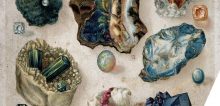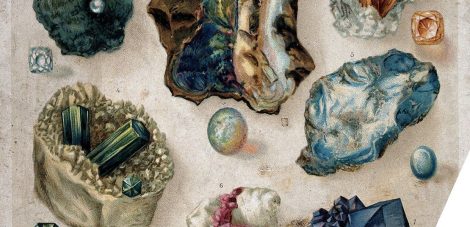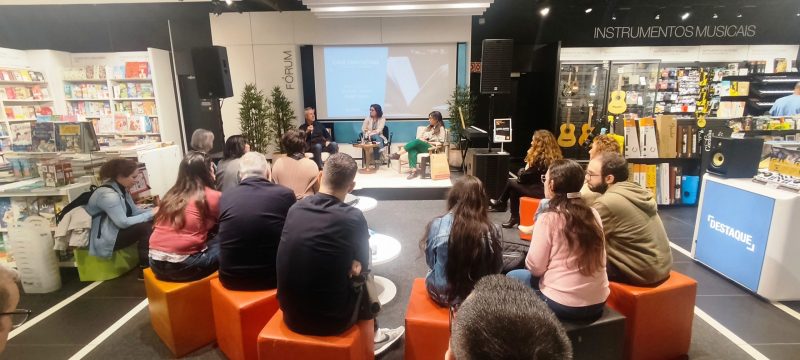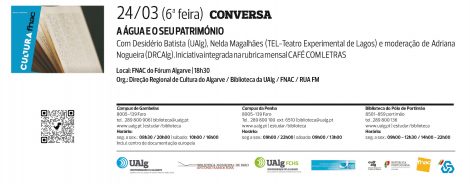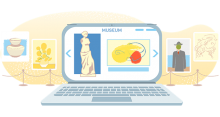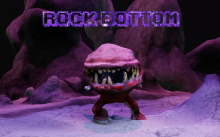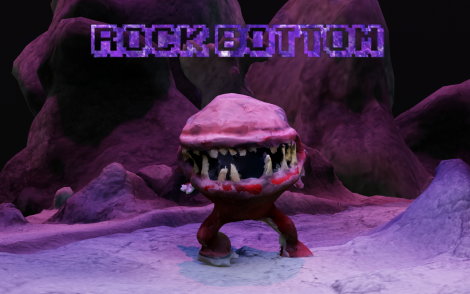A frequently-made assumption is that by going digital, museums would attract younger audiences, but is this true?
Research project of MA students in the Museums in Context course at the Erasmus University Rotterdam, MA Cultural Economics led by professor Trilce Navarrete.
Authors: Sara Ingoglia, Aline Albertelli, and Cas de Boorder
All images courtesy of the authors.

Digitization has become a highly debated topic in the business and academic fields. Some museums have started exploring the digital world as a consequence of the Covid-19 pandemic, while others were already experimenting in this field in response to the evolutions affecting their external environment. A frequently-made assumption is that by going digital, museums would attract younger audiences, but is this true?
To inquire into this topic, we distributed a survey in our personal and professional network of youngsters through social media platforms. The main purpose of our online questionnaire was to investigate young people’s perception of digital museums, in order to better contextualize their answers, we explored their overall attitude towards museums and their digital behavior. Our main result is that young audiences recognise the opportunities offered by digital tools claiming that digital museums are more than a mere trend; however, those that experienced the digital museums (44% of our sample) would like it to be more interactive. All respondents appreciate the ease of use and entertainment provided by other cultural products online, which could provide clues on how to connect with individuals that have never engaged with a digital museum.
The final sample included 156 individuals, between 17 to 34 years of age, thus pertaining to the Millennials and Gen Z groups. The general demographic features encountered match those of previous studies of cultural consumption in which most of the respondents are females of a western background (69% of our sample). Our respondents can be defined as very culturally active but not cultural experts since they claim to visit a museum once every 2-3 months or more often but self-evaluate their cultural heritage knowledge as average (6 on a scale from 1 to 10).
Considering today’s trends identified by Kikalishvili, we were expecting respondents engaging with museums to be included, to make social encounters, to address current issues and to be engaged; while the need of engagement and social interaction was identified, it was surprising not to find activism as a driving factor to visit a museum or the desire to feel included (however, this latter could be connected to the predominantly western background of the sample).
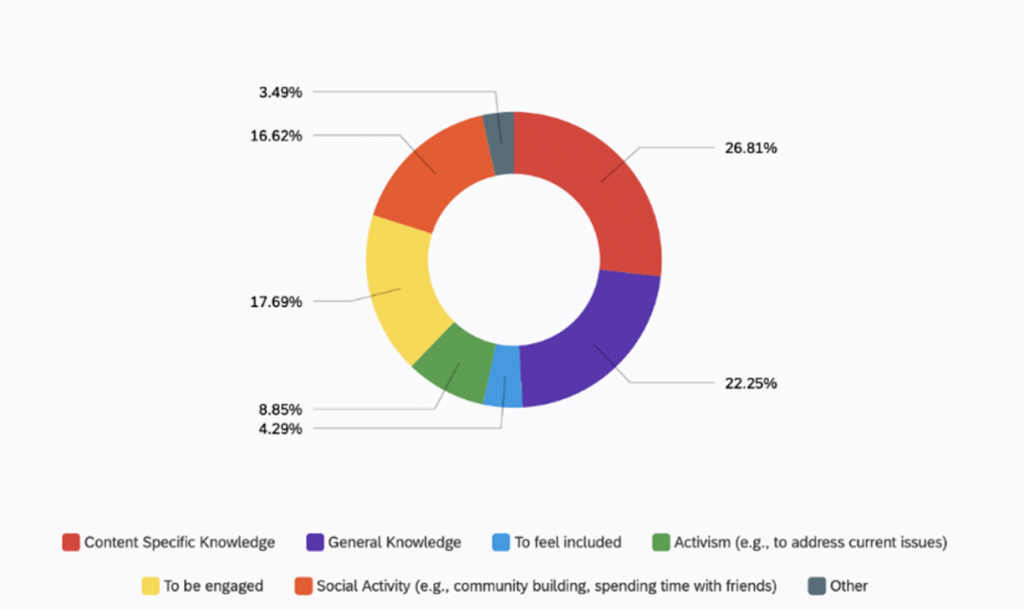
Fig.1 Respondents’ motivation to visit a museum
In relation to their online behavior, we found a positive inclination towards digital technologies with only 10% of respondents not considering themselves digital natives (the others answering either positively 58% or with a maybe 32%) as expected. Our results support the conception that Gen-Z and Millennials are widely comfortable with digital environments.
Concerning the assessment of the digital museum experience [1], 44% of the sample asserts to have experienced a digital museum; although in general terms this may be seen as a low result since below average, in this context this can actually be considered as a positive outcome. Since the introduction of online services by museums is quite recent and in an initial development stage, finding that almost half of the sample already engaged with a digital museum makes us feel hopeful for the future. In this regard, we only see a way forward for digital museums, this view is confirmed by our sample’s claim that digital museums are not a trend.
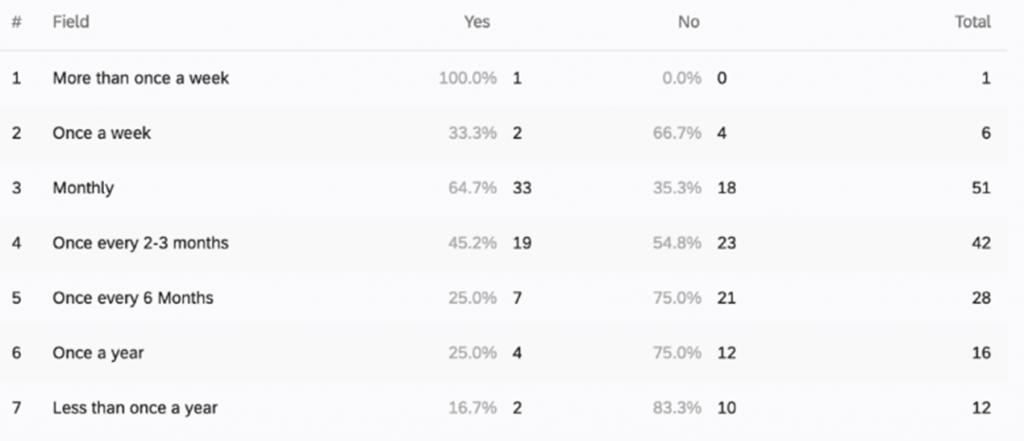
Fig. 2 Correlation between frequency of physical visit (vertical) and having experienced a digital museum (horizontal)
In addition, we considered interesting to understand whether the frequency of physical visits and the decision to participate in digital museum experiences were interrelated; in this respect, we found that those who engage more often in physical visits are more likely to visit a digital museum.
Two main points can be highlighted regarding young people’s perceptions of digital museum experiences: first, respondents that had experienced digital museums services asserted that they would increase the level of interactivity provided, reaffirming their need to be more active while coming into contact with museums as found in previous research; this suggests that digital experiences provided by museums are yet to be exploited to their full potential.
Second, those individuals that never experienced a digital museum stated that they consume other cultural products online of which they appreciate the ease of use and entertaining features. While we must consider the uniqueness of the museum service compared to other cultural products online (such as music and films), understanding what young people are looking for in terms of online cultural consumption and leisure activities can be somehow useful.
This data should therefore be considered with flexibility but it could provide interesting insights for museums aiming to cater the needs of younger audiences.
We have also explored young people relationship with phygital experiences in the museum, meaning the use of digital tools while in a physical space [2]. As these tools are usually optional, the results can provide a nice representation of the willingness of young museum visitors to engage with digital technologies in the museum sphere. About this, 67% of the sample declared to have used phygital tools in the museum thus showing a positive inclination to engage with technologies during a museum visit. In addition, we asked our respondents what they deemed most important when visiting a museum and linked this information to their choice to use phygital tools. A very compelling point is that individuals that have used phygital tools show a larger percentage (18%) of inclination to take part in a social activity while visiting a museum, thus breaking the stigma that digital leads to visitors’ isolation and loss of social interaction.

Fig. 3 Correlation between use of phygital tools and motivation to visit a museum
Our research wanted to analyse how digital natives, more precisely, Gen Z and Millennials, perceive the introduction of digital technologies in museums. Current literature assumes that these generations are more prone to engage with technologies and appreciate the integration of technologies various products and services.
However, it can be asserted that younger audiences are still exploring and discovering digital and phygital museums and have yet to understand how to approach these as separate entities from the physical museum. In the same way, museums are just starting to experiment with new technologies to offer innovative services to visitors and they are still not completely aware of the possibilities provided by these tools.
Our results are twofold:
- From the museum perspective, it can be stated that institutions can improve their digital services to cater the needs of younger audiences. Likely over time, with more research on audiences’ needs and more awareness on the potential offered by digital technologies, museums will be able to become more interactive and accessible through their online presence.
- From the visitors’ perspective, audiences have to bear in mind the peculiarities of cultural heritage consumption also in the online dimension; thus, visitors have to consider that while engaging with a museum’s digital content they are required to be “mentally present” and concentrated on what they are doing. In other words, experiences offered by a museum are not comparable to listening to music or watching a movie but this does not mean that they cannot be entertaining.
The data illustrated above represent part of the main findings of our research in the framework of the Museums in Context course at the Erasmus University Rotterdam; overall, this study provided useful new insights on how young audiences interact with digital museums and highlighted some central points to be considered by the institutions when designing future digital heritage experience.
[1] By Digital Museum we refer to “All the online services that enable an individual to interact with the museum institution” (e.g., museum website, museum profiles on social media, third party platforms…)
[2] Phygital = the union between the physical and the digital world. Phygital experiences enable people to access a physical space while taking advantage of the benefits of digital technologies. (Inside the museum, the most common examples are QR codes and touch-screen totems).
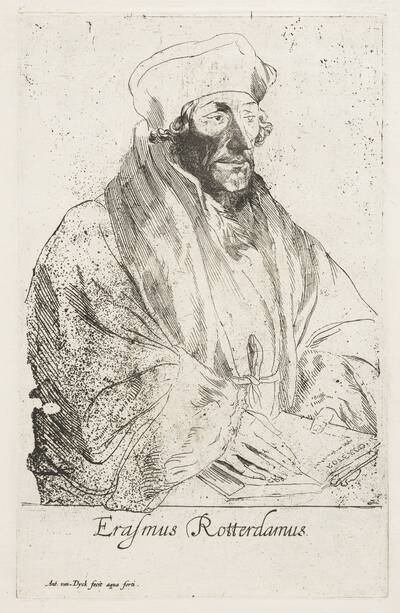


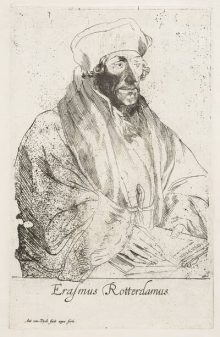
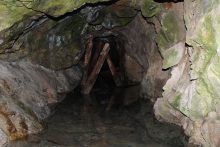
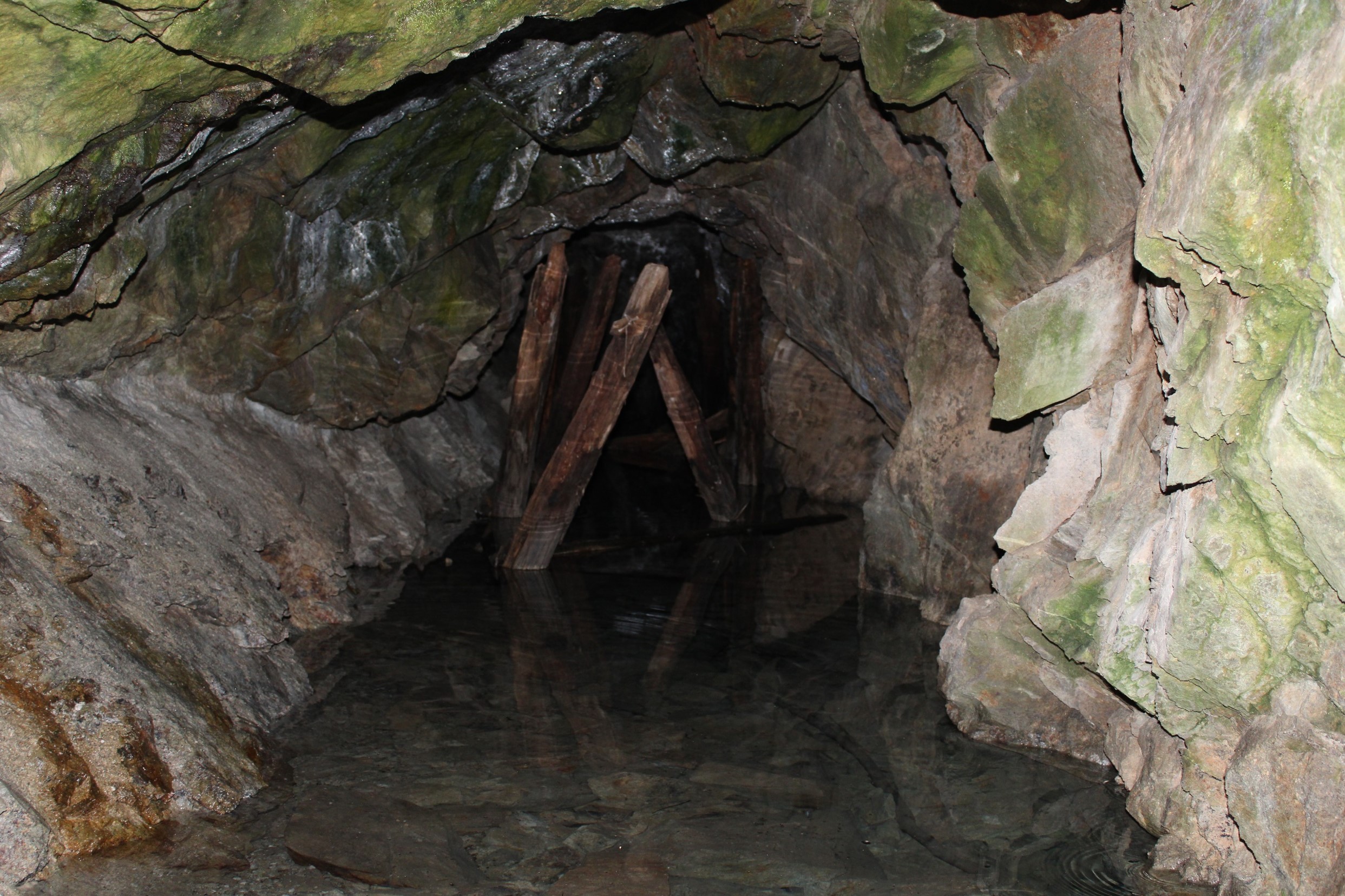
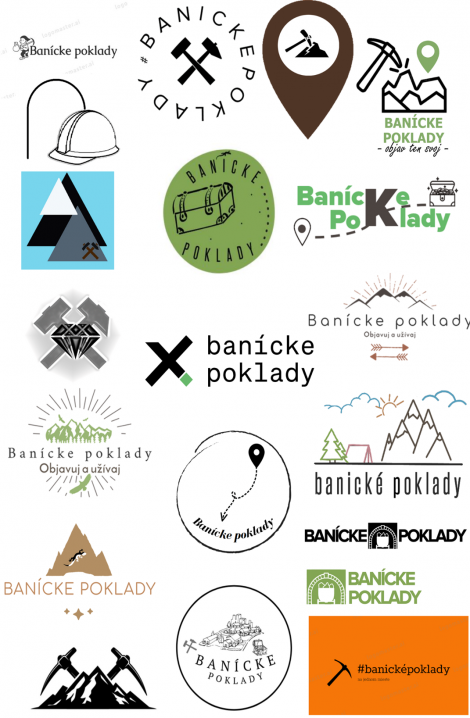 The final logo design was completed together with a professional typographer. Therefore, the quality of the concept was important, not the final visual processing. Furthermore, the students received training on font and colour palette. This was important because on the website, we use a wider colour palette, primarily from a functional point of view, so that we can distinguish the categories of activities. A more concise version is sufficient for communication. For the identity, it is necessary to select from the web palette the primary colour or colours that we will use on the communication media and define how to use them. Finally, the importance of the graphic element was explained. A graphic element can be part of a logo, a pattern, or anything else that helps us unify identity applications. It is necessary to define how all these brand codes will be used on social networks, as banners, in presentations or videos. Therefore, it is necessary to show the identity in context, for example, on social media post activity, universal cover, as a title page of a printed brochure about mining treasures or gift bag.
The final logo design was completed together with a professional typographer. Therefore, the quality of the concept was important, not the final visual processing. Furthermore, the students received training on font and colour palette. This was important because on the website, we use a wider colour palette, primarily from a functional point of view, so that we can distinguish the categories of activities. A more concise version is sufficient for communication. For the identity, it is necessary to select from the web palette the primary colour or colours that we will use on the communication media and define how to use them. Finally, the importance of the graphic element was explained. A graphic element can be part of a logo, a pattern, or anything else that helps us unify identity applications. It is necessary to define how all these brand codes will be used on social networks, as banners, in presentations or videos. Therefore, it is necessary to show the identity in context, for example, on social media post activity, universal cover, as a title page of a printed brochure about mining treasures or gift bag.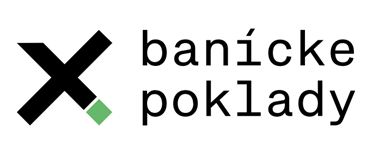


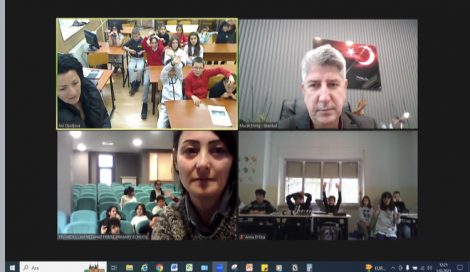
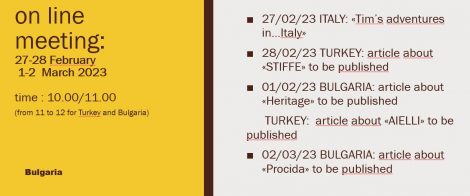
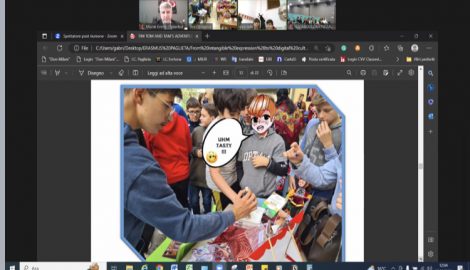
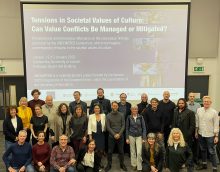
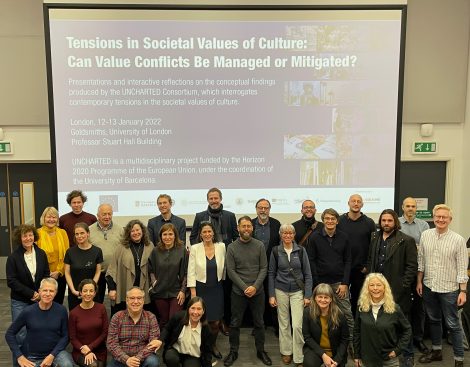
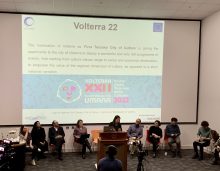
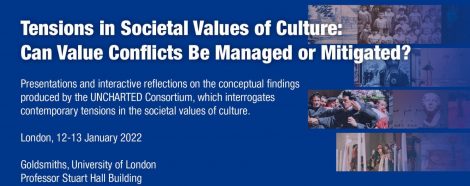
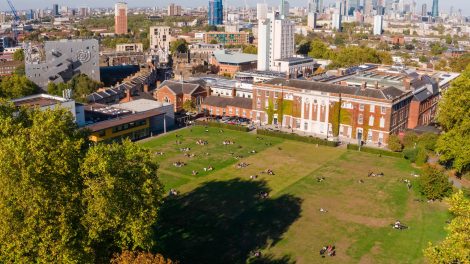
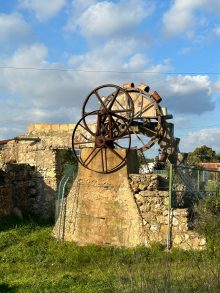
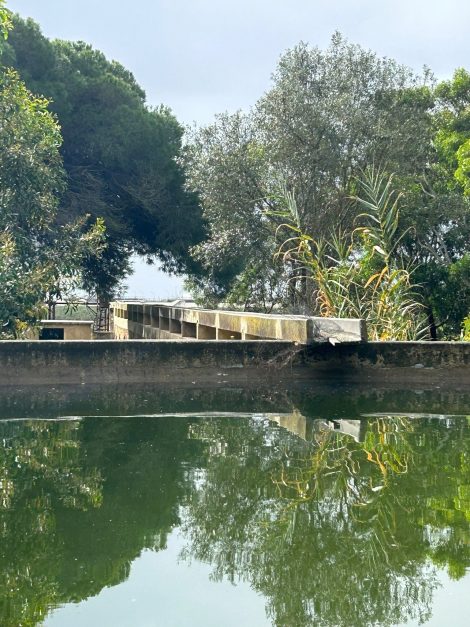 INCULTUM project and
INCULTUM project and 





